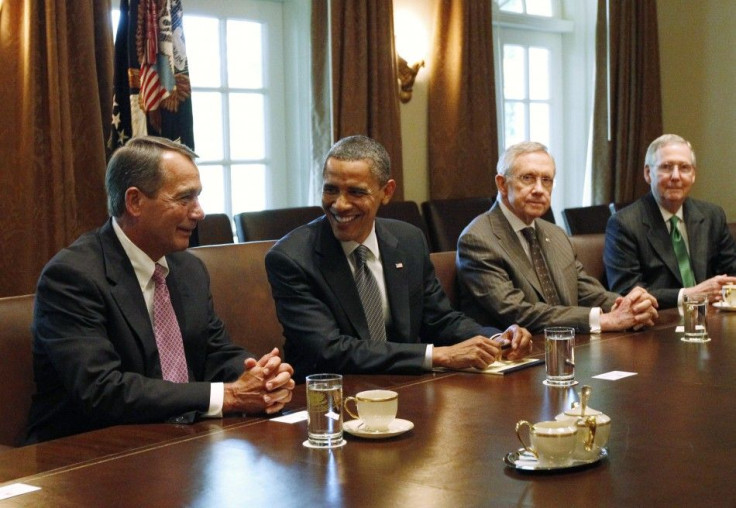Despite Parties? Feud, Debt Deal Requires Compromise
Analysis

There may be a way-out of the U.S. debt deal impasse, if rationality prevails inside the beltway.
True, rationality and 'inside the beltway' are not usually linked. But here goes:
The key lies in either: a) Senate Majority Leader Harry Reid, D-Nev., and House Speaker John Boehner, R-Ohio coordinating their two bills or b) Reid and Senate Minority Leader Mitch McConnell's, R-Ky., plan, the so-called "last-chance" bill, taking precedence.
The reason is that Boehner's plan -- in pure form -- is not likely to be approved by the U.S. Senate.
On the other hand, Reid/Boehner hybrid bill or a the Reid/McConnell "last-chance" bill could attract enough veteran House Republicans, who when combined with House Democrats would make a majority to pass either of those bills.
That the 90 Tea Party members will vote against either a Reid/Boehner hybrid or a Reid/McConnell plan is axiomatic. At this stage it appears that a substantial number - if not all Tea Party members -- will vote against any bill that raises the debt ceiling, period - even if it causes a U.S. Government default, with all of the negative consequences for credit market and the U.S./global economies.
The Congressional Budget Office scored the Reid debt plan a $2.2 trillion reduction over 10 years; Boehner's plan scored a considerably smaller amount, but his staff was working on a revision that would likely put it above $1.2 trillion his original outline called for.
Boehner Wednesday also said he believed his revised debt plan would have a good chance of being approved in the Senate, thehill.com reported. However, there was little substantive evidence Wednesday to suggest his contention his accurate.
Political/Public Policy Analysis: A Reid/Boehner hybrid would not be easy, but is achievable and is capable of passng both chambers; a Reid/McConnell "last-chance" bill is even more likely to pass both chambers
Each would raise the debt ceiling, and seek spending cuts larger than the debt ceiling; the real work involves arriving at a bipartisan agreement regarding how much federal spending to cut over 10 years, and that can be achieved by negotiation now, or by an agreed-to bipartisan committee.
© Copyright IBTimes 2024. All rights reserved.











